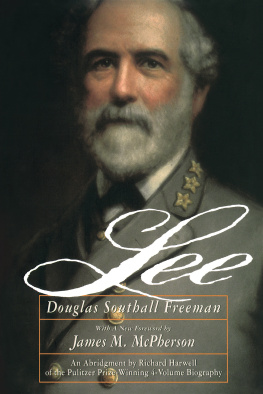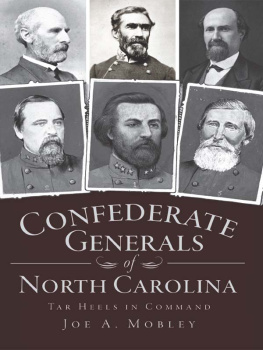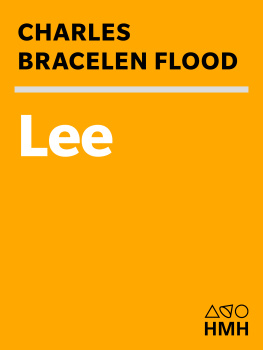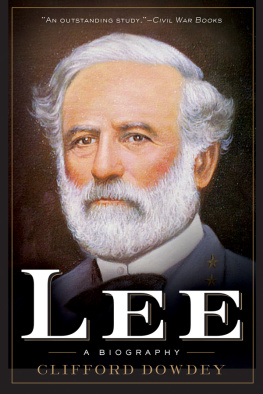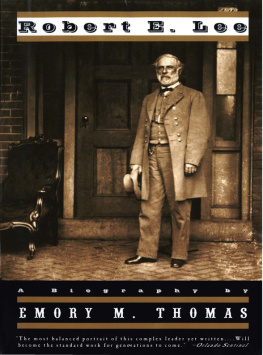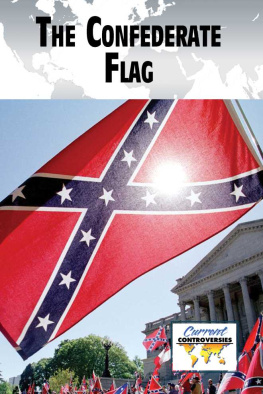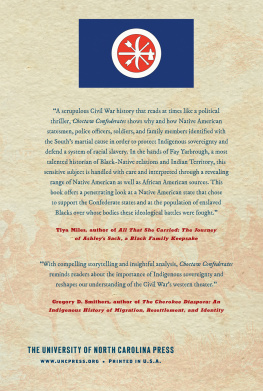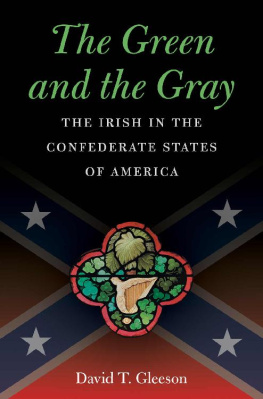MARCHING MASTERS
A NATION DIVIDED:
STUDIES IN THE CIVIL WAR ERA
Aaron Sheehan-Dean, Editor
MARCHING MASTERS
Slavery, Race, and the Confederate Army
during the Civil War
COLIN EDWARD WOODWARD

University of Virginia Press
2014 by the Rector and Visitors of the University of Virginia
All rights reserved
Printed in the United States of America on acid-free paper
First published 2014
1 3 5 7 9 8 6 4 2
Library of Congress Cataloging-in-Publication Data
Woodward, Colin Edward, 1975
Marching masters : slavery, race, and the Confederate army during the Civil War / Colin Edward Woodward.
pages cm. (A nation divided : studies in the Civil War era)
Includes bibliographical references and index.
ISBN 978-0-8139-3541-6 (cloth : alk. paper) ISBN 978-0-8139-3542-3 (e-book)
1. SoldiersConfederate States of AmericaAttitudes. 2. Confederate States of
AmericaMilitary policy. 3. Confederate States of America. ArmyMilitary life.
4. United StatesHistoryCivil War, 18611865African Americans.
5. United StatesHistoryCivil War, 18611865Participation, African
American. 6. United StatesHistoryCivil War, 18611865Social aspects.
7. SlaverySouthern StatesHistory19th century. I. Title.
E607.W66 2014
973.7'42dc23
2013029859
To my parents
CONTENTS
ACKNOWLEDGMENTS
The writer must write alone but he nevertheless accumulates many debts. This book began in late 2000 as a dissertation at Louisiana State University. At LSU, I want to thank my advisor, Charles Royster, who took me on as a graduate student and nearly saw my dissertation to its conclusion. Illness in the spring of 2005 prevented him from attending my doctoral defense, and I want to thank Bill Cooper not only for seeing the project to its end, but for providing me with valuable advice on proceeding from dissertation to book.
At LSU, Gaines Foster always found the time to provide me with help and advice. I also must thank Mark Thompson and David Culbert for serving on my dissertation committee and giving me valuable feedback. The history department, furthermore, provided me not only with six years of graduate assistantship funding, but also a T. Harry Williams fellowship, which gave me much-needed time to complete the dissertation.
The archivists at Hill Memorial Library saw a lot of me while I was at LSU. Their help, especially that of Mark Martin, was much appreciated during frequent trips to the research room. Rand Dotson at LSU Press took an early interest in my book and assured it was in much better condition than when I first showed him the manuscript. David Gauthier and Keith Finley were good friends during the dissertation process and continued to be so after graduation. Keith read the manuscript in its entirety and gave me compliments at a time when the book project seemed stalled.
The Virginia Historical Society helped me in many ways. A Mellon research grant enabled me to conduct my first archival research outside of Louisiana. The grant gave me access to the VHSs wonderful resources and exceptional staff, and it brought me to Richmond, which I fell in love with instantly. Living in the former Confederate capital helped me better understand the war. Trips to the Byrd, Deep Groove Records, and Scuffle-town Park, furthermore, were inspiring.
The VHS employed me as an archivist while I was revising the manuscript. Nelson Lankford was kind enough to read several chapters of my book and provide feedback and encouragement. A VHS staff fellowship, furthermore, enabled me to visit the archives at Chapel Hill in 2009.
In 2008, I was honored that Duke University awarded me a two-week John Hope Franklin research stipend. My days in Durham allowed me to add much-needed literary color and geographic diversity to my group of Confederate soldiers.
One of my greatest debts is to Aaron Sheehan-Dean, formerly an acquisitions editor at the University of Virginia Press. Back in 2008, I opened my e-mail one morning to find him asking about whether I was interested in sending him my book manuscript. Eventually, I did. And he, more than anyone, is responsible for this book becoming part of the Nation Divided series.
At UVA Press, I wish to thank my editors, Dick Holway and Morgan Myers, for their time and patience, as well as the other staff who contributed. I am also indebted to the outside reviewers who read and commented on the manuscript and recommended it for publication. My copy editor, too, Ruth Steinberg, deserves many thanks.
My greatest debt of all is to my wife, who has been extremely supportive throughout the writing of this book. She endured my many hours of solitary research and slogging through revisions. Her love has made me much stronger than I was before this project began. She also gave me a daughter, who has made my life even better.
This book is dedicated to my parents, who assured that I put a high value on writing, thinking, and the truth.
INTRODUCTION
James Paul Verdery of the Forty-Eighth Georgia Infantry got into position. It was about eight oclock in the morning on 30 July 1864. He and the rest of the men in Mahones division could barely load their rifles before the Union forces stormed over their breastworks. The Federals kept charging, but Verdery and his comrades would not retreat in the face of the attacking Niggers. As fast as they came over the Bayonet was plunged through their hearts & the muzzel of our guns was put on their temple & their brains blown out, Verdery wrote his sister, describing the infamous Battle of the Crater. Using explosives placed far below the Confederate trenches, Northern forces blew a hole in the Rebel lines 170 feet long, 60 feet wide, and 30 feet deep. The ground in the center was invisable to the eye owing to the many dead & dying Blacks piled upon one another, Verdery wrote. Once the Rebels stopped the Federals, they crushed the heads of Union wounded with rifle butts. Well dear Sister, Verdery concluded, I have witnessed a truly Bloody Sight a perfect massacre nearly a Black Flag fight. The Crater battle was not one of the bloodiest engagements of the war, but it was one of the most vicious. The brutality of the fighting had its roots in the long-standing animosity between Southern whites and blacksthe one group fighting for a slaveholding republic, the other for Union and freedom for those still held in bondage.
In a war that erupted over the future of slavery in North America, the Confederate army served as the shield and sword of the peculiar institution. Slavery ended only after four years of bloody conflict in which more than 260,000 white Southern troops died.ended because the North defeated a Confederacy that would not abandon human bondage without war.
To understand slavery during the Civil War, historians must explore its role in the lives of Confederate soldiers. This work examines slaverys role in the creation of both Confederate identity and Confederate war strategy. In the first instance, slavery and mens desire to protect a white mans government played a central role in the formation of the Confederacy. Southern troops had a complex relationship with slavery, both ideologically and in their day-to-day interactions. On the one hand, slavery was an abstraction, a subject of argument, and one that many Southerners loudly defended against abolitionists. On the other hand, whether or not one was a member of the master class, slavery created intimate, though not necessarily benign, relationships between whites and blacks. In the second instance, that of Confederate war strategy, I show that the Rebel armys reliance upon, and protection of, slavery had a profound effect on military strategy. From the invasion of the border states in 1862 to acquire more slave territory, to the 1862 Twenty Slave Law, to slave impressment, to the refusal of Confederates to recognize black troops as prisoners of war, the army worked to assure the protection of slavery.
Next page

